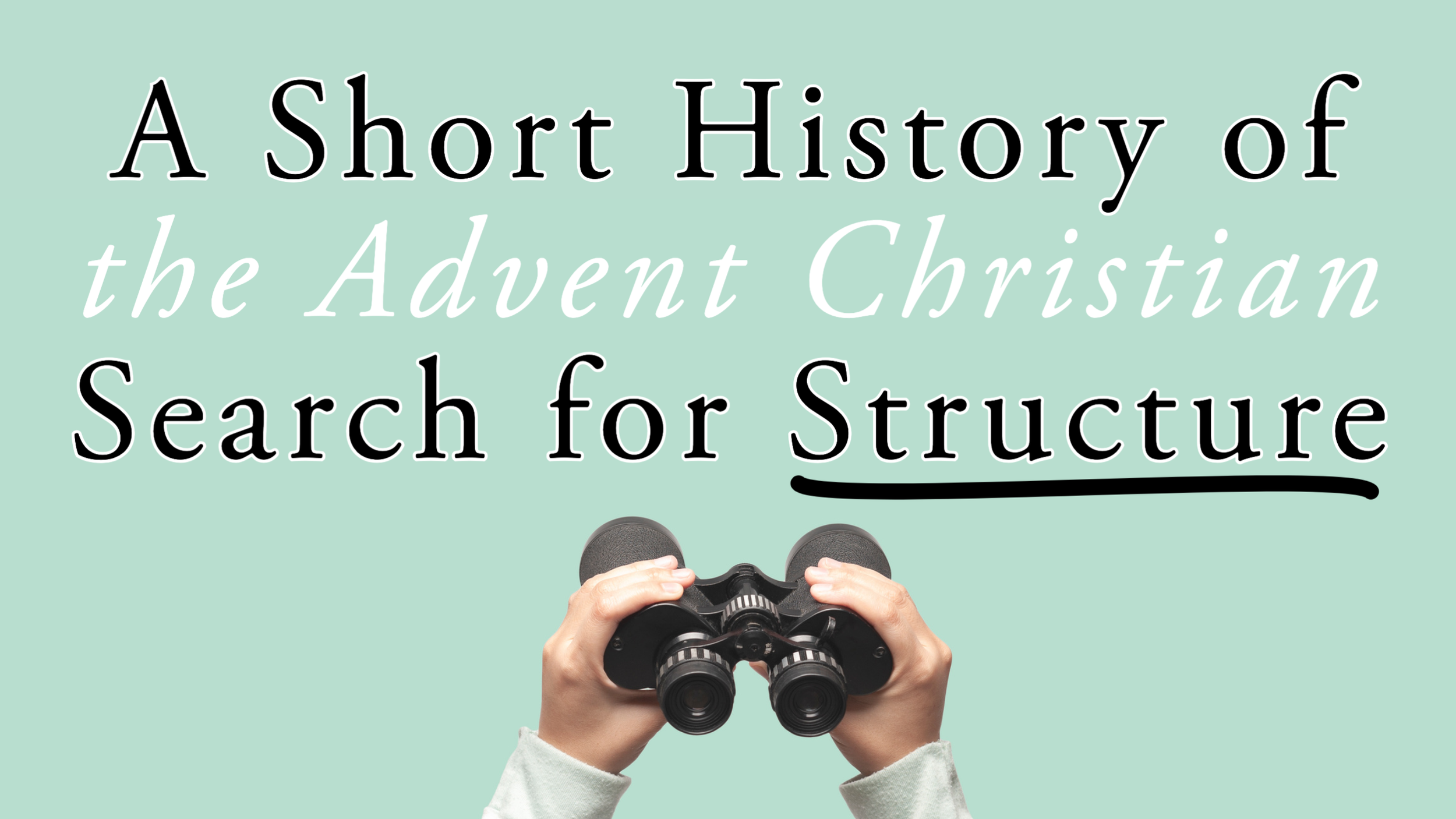Historicism is an oft forgotten distinctive with a strong past in the Advent Christian tradition.
Read MoreYou can only understand the Advent Christian denomination if you understand that it was a movement before it was a denomination…
Read MoreLike me, you’ve probably noticed a rise in the number of people who identify as “progressive Christians”. And if you’re like most people, you’ve wondered, “What the heck does that mean?” Well, that question is difficult to answer for a couple of reasons…
Read MoreI've begun to view theology much in the same way. Admiration is a term that comes to mind in describing those who've come before me. The church fathers such as Augustine, the Gregorys, Athanasius, Basil, and Didymus are all crucial thinkers of the Christian thought with whom we should be acquainted. These men helped build roads for the Church to understand God more deeply and fully as they compacted the dirt underneath their tires, forming routes with their faithful exposition of God's Word.
Read MoreImagine if my wife described me as slender, clean-shaven, neatly dressed, short, and quiet. Then you met me and saw that I towered over most people, sported a Dad-bod, wore crocs, and have a beard that hides my chest. You’d think my wife must be talking about her other husband. That’s quite similar to our disagreements regarding the nature of God. Although we maintain denominational fellowship with those who reject the Trinity, we worship a different God because we disagree as to who God is.
Read MoreA Case for Biblical Egalitarianism: Part Two
Read MoreEgalitarianism. Otherwise known as - being in support of women in ministry and women holding positions of spiritual authority.
Read MoreThere are three categories that I want to consider that could benefit from the ingenuity spurred on by rising secularism: (1) missions, (2) doctrine, and (3) education. Each of these has influenced the Advent Christian church immensely over the years. The doctrines of conditional immortality saw the formation of our denomination. Advent Christians have most often been united in their shared efforts in foreign missions. The denomination’s institutions of higher learning continue to be a source of pride and unity.
Read MoreLet’s stand in thankfulness for the work done by our Christian forbears and early Church Fathers. They’ve handed down priceless heirlooms born out of the careful study and thoughtful discussion in the early hours of our faith’s birth. Rejection of the creeds is to purposefully separate oneself from foundational Christian orthodoxy carried forward from the days before the legalization of Christianity.
Read MoreIt is remarkable how ignorant the contemporary church is to its history. I’m by no means an expert, more like a hobbyist on the matter. Whether it’s reading the original works of guys who died long ago, or imbibing in a solid biography, church history is a joy for me. I’d like to share that joy with you by helping you see its importance.
Read More“What did the Adventist publications say about women earning the right to vote?”
This was one question that came to my mind while I was visiting Aurora University, doing some research in their Adventist archival collection. I was entertaining questions in my mind about how Advent Christians reacted publicly to major current events. Case in point – the ratification of the 19th amendment to the United States Constitution, which gave women (who were legal US citizens) the right to vote. And so, I began to read.
Read MoreTo set the scene, I am taking a course in ethics at a prominent Catholic college (I’ll keep some details anonymous to protect the professor). Of my classmates, at least half of the class are Roman Catholic priest or members of a Catholic religious order (e.g. Society of Jesus/Jesuits).
Read MoreIn the midst of doing the research for my eventual essay, "Recollecting an Advent Christian Political Theology: A Retrieval of Advent Christian Thought on the Relationship Between Church and State”, I had the good fortune of uncovering a digitized version of I.C. Wellcome’s pamphlet, “Should Christians Fight?”.
Read MoreWhen studying the Advent Christian tradition, one is hard-pressed to find any self-conscious attempts at political theology. In larger treatments found in pamphlets and books, implicit political theologies might emerge in the midst of discourses on world events, the Kingdom of God, and of course pacifism, but there are very few (and by my count no) books consciously dedicated to the subject. In smaller treatments found in various Advent Christian periodicals, one does find some forthright consideration of the relation between the church and politics, but as is the case with most of the books above, it is difficult to measure the influence of these writings. The lone exception when it comes to measuring influence may be I.C. Wellcome’s popularly received pamphlet Should Christians Fight?
Read MoreThroughout the 1830s and early 1840s, a frenetic movement raged across the American landscape spawned by William Miller’s conclusions regarding the time and manner of Christ’s return. His study of the Bible led him to believe in the personal return of Christ in 1843, a belief that quickly won wide approbation among those who would come to make up the Second-Advent/Millerite movement. Despite the earnest expectation of these Millerites, Christ was not to appear in 1843, nor was he to appear in the eagerly embraced subsequent year of 1844. The accumulation of these failed expectations became known as “The Great Disappointment.” The Second Advent movement was in ruins.
Read MoreMrs. Miriam McKinstry, as discussed in the previous post, outlined her course of lectures on “The World’s Great Empires” out of the desire to see a new form of teaching that would stir up more public interest. Mrs. McKinstry was an evangelist at heart, and desired to take her lecture series and teach it all over the United States and Canada with the goal of spreading the message of the soon-coming return of Christ.
Read MoreIn my previous studies on Abigail Mussey (see part one and part two), prior to deciding on what to write about and who to write about, I came across the name of another woman in Advent Christian history, and I was immediately intrigued. Her name is Rev. Mrs. Miriam McKinstry, and she was referred to as the “most noted Advent Christian woman preacher.”
Read More“In essentials unity, in non-essentials liberty, in all things charity,”[1] but what are the essentials? While both R.C. Sproul and John MacArthur can share a pulpit to give their differing positions on baptism (infant vs. believers baptism respectively), and speak at the same conferences, the fact remains that if R.C. Sproul were faithfully attending MacArthur’s church he still would not meet the requirements for membership and therefore could not join. While the general concept of baptism is necessary in order to be unified with the essentials o
Read MoreAt the 2017 ERA annual meeting, President Steve Brown of BICS presented the idea that the major barrier to unity within the Advent Christians is “theological fragmentation.” The major proposed solution, assuming one accepts the premise, was a call for a hermeneutical reformation (a la Kaiser as exemplar) to reinvigorate and reestablish basic, core, essential principles of interpretation in hopes of gaining unity of mind together.
Read More



















